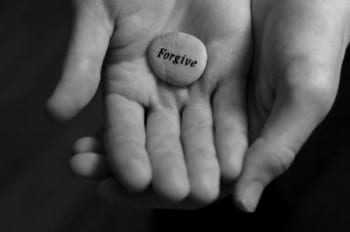 We’ve all been hurt by another person at some time or another. We were treated badly, trust was broken, hearts were hurt. We relive the pain over and over, and have a hard time letting go.
We’ve all been hurt by another person at some time or another. We were treated badly, trust was broken, hearts were hurt. We relive the pain over and over, and have a hard time letting go.
This causes problems. It not only causes us to be unhappy, but can strain or ruin other relationships, distract us from work and family and other important things, and make us reluctant to open up to new things and people. We get trapped in a cycle of anger and hurt, and miss out on the beauty of life as it happens.
We need to learn to let go. We need to be able to forgive, so we can move on and be happy.
In this part, we will discuss forgiveness; how we can forgive people and let go.
Forgiveness and the Quran
For this article series, I chose to discuss this quality as it is Ramadan and we seek forgiveness from Allah. When we ask for forgiveness from Allah, if we can forgive people for everything they have done, then we have even more chance for His mercy and forgiveness:
“If someone pardons and puts things right, his reward is with Allah” [42:40].
This verse points out that from all those feelings, the virtue to forgive is so big that Allah Himself will give the reward. Indeed, it is not easy to forgive.
In my coaching with my clients, I make the individual cleanup of wounds fully by going deep into his/her life to fully remove the negative event from one’s memory. Since the process we perform is dependent on the nature of hurt and background and is more on mind-mastery, it will be out of scope for this article.
Here, we will discuss 6 steps to forgiveness:
1. Decide and commit – to let go. It may take time or maybe you can do it in a second. However long it takes, commit that you will forgive this person, because you recognize that the pain is hurting you.
2. Tell “the story” from the other person’s perspective. Actually, imagine that you are the other person (the one who hurt you) and use the word “I” when saying what that person would say. You, most likely, don’t know exactly what s/he was thinking when this event unfolded; but pretend that you do, and just go with the story that comes up in your head. Sit down with a friend, and tell the story as though you are that person. It is important to do this verbally and not just in your head. Realize in advance that this is not an easy exercise, but it holds great power. Your willingness to tell the story from the other’s perspective requires an effort at forgiveness.
3. Understand your responsibility. Try to figure out how you could have been partially responsible for what happened. What could you have done to prevent it, and how can you prevent it from happening next time? This isn’t to say you’re taking all the blame, or taking responsibility away from the other person, but to realize that we are not victims, but participants in life.
4. Send him or her a blessing. Hope the best for him or her. This has two effects: 1) It neutralizes that acid of hate that destroys the vessel in which it is stored. The first time you try this, the “blessing” may feel contrived, empty, and even hypocritical: but keep trying. 2) This technique forces your mind to overcome the cognitive dissonance between hating someone and acting with compassion toward him or her. You will soon begin to say to yourself, “S/he is deserving of a blessing, and indeed, must need one very much.”
5. Allow happiness to enter your life. As you focus on the present, try focusing on your breathing. Imagine each breath going out is the pain and the past, being released from your body and mind. And imagine each breath coming in is peace, entering you and filling you up. Release the pain and the past. Let peace enter your life. And go forward, thinking no longer of the past, but of peace and the present.
6. Forgive. Finally, forgive the person and realize that in forgiveness, you are allowing yourself to be happy and move on. Feel empathy for the person and wish happiness on them. It may take time, but if you’re stuck on this point, repeat some of the steps above until you can get here.
Let go. Forgive. Begin a new life. Today.
Summary: I hope you have benefitted from this article series with understanding your emotions and how you can handle them. Try the strategies you learned in this series, and you will see the change in your life, inshaAllah. Let this Ramadan be a new life for you.
—
SuccessMuslim (http://successmuslim.com) is a personality development, success coaching and mentoring website for Muslims. “Success, achieving our best, win duniya and akhira” is the theme of this site. SuccessMuslim is the first Islamic website to completely focus on personality development articles topics. And it is FREE.



